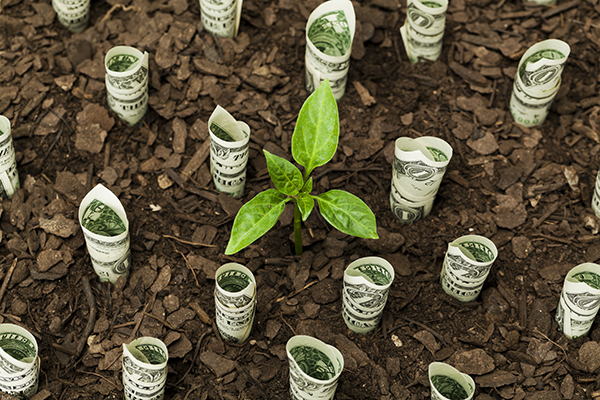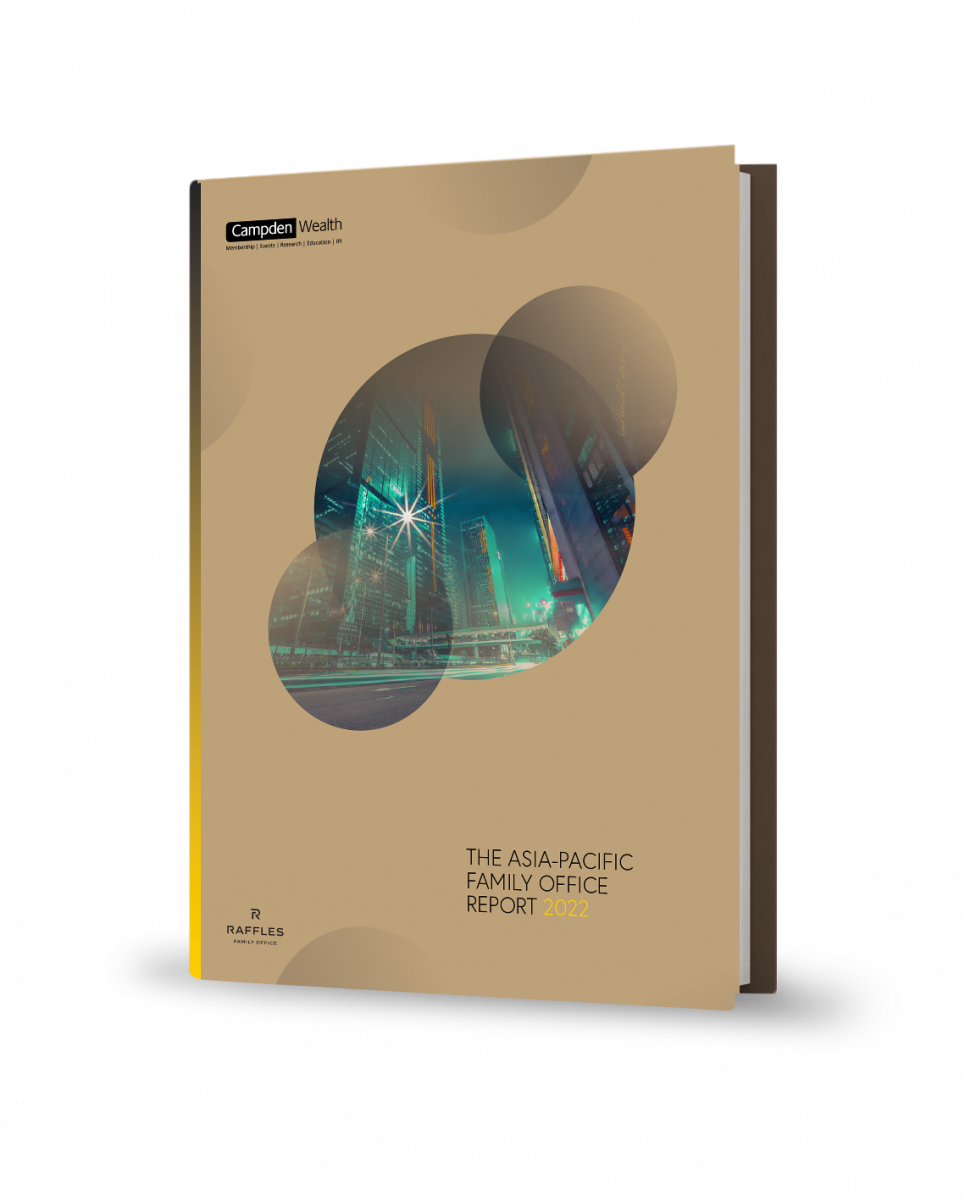Why are family offices increasing sustainable investing?

An increased consideration of environmental, social and governance (ESG) factors, innovations in technology and a next-gen-driven desire to do better for the world are seen as motivating factors for family offices increasing their commitment to sustainable investment, according to Campden Wealth and Raffles Family Office’s Asia-Pacific Family Office Report 2022.
The newly released report found that 42% of family offices in Asia-Pacific are now engaged in sustainable investing, with 29% of their portfolios dedicated to sustainability (up 4% from 2021 and 2% higher than the global average). Looking ahead, this is expected to increase to 50% over the next five years.
“I think most family offices have always been open to sustainable investments but there just weren’t as many options available,” says next-gen family office principle Victoria But. “Now with many countries making commitments to becoming carbon neutral and increased awareness in ESG, it just makes it easier for investors to invest sustainably.”
Indeed, motivated by concerns over climate change, the report found an increased concentration on green tech (62% of family offices already invested), as well as digital transformation (52%), artificial intelligence (44%), biotech (42%) and healthcare (38%).

This renewed focus is, says fourth-generation entrepreneur and second-generation investor Anirudh Damani, down to a natural inclination to do well and do good.
“Entrepreneurs now understand that they have to build sustainable businesses or acquire from sustainable sources,” says the Artha India Ventures head. “Entrepreneurs are realising that it’s a lot easier if you have a renewable or sustainable supply source.”
“Reflecting a wider global trend, family offices in Asia-Pacific have been adopting sustainable investing at a rapid pace in recent years,” says Campden Wealth’s senior director of research, Dr. Rebecca Gooch. “At present, over two-in-five family offices invest sustainably. It has long been understood that the next generation is a key driver behind this.
“It is the emerging generation which is going to feel the effects of climate change more than any that came before it, and this has become a galvanising factor among those who see sustainable investing, mixed with sizeable private capital, as a powerful vehicle to combat it.”
So, is the next generation the one to make the changes that are so urgently needed?
“Yes that’s our hope, but there are concerns around the decision-making powers and authority of founders and patriarchs, who currently dominates the decision-making in Asia,” says Priyaka Dhingra of KPMG Singapore’s ESG Hub. “When the transfer of wealth does takes place, next gens will be key champions in driving forward sustainable investments and causes.”
“We need to be innovative and use technology to accelerate and continue the work, so it is not just this generation but also future generations that understand how to live sustainably on planet Earth,” says Victoria But.
I think we are on the right path but we need more breakthroughs to achieve carbon neutrality.
The report found that, among global family offices, sustainable investments have grown from 21% of portfolios in 2020 to a current 27% and are projected to increase to 38% by 2027. There’s a clear uptick but there are concerns that this may not be enough to affect real sustainable transformation.
“The quantum needed to affect serious change in Sustainable Development Goals (SDGs) is an incremental $1.5 trillion annually,” says Priyaka Dhingra. “Family offices, as well as limited partnerships, private sector firms and banks etc, will need to collectively contribute towards this funding gap. Family office funds can go a long way to catalysing private capital through blended finance structures which de-risk deals, such as subordinated capital, guarantees etc.”
“I think we are on the right path but we need more technological breakthroughs, governmental laws and regulations and consumer awareness to achieve carbon neutrality,” says Victoria But.
Global ESG assets are expected to exceed $41 trillion during 2022, or roughly one third of all assets under management (AUM). Approximately half this total is in North America, and one third in Europe, Asia-Pacific and Japan account for the remaining 15%. However, in terms of ultra-high-net-worth (UNHW) family engagement, the report highlights Asia-Pacific as leading the way ahead of North America.
“With APAC being the world’s largest manufacturing hub with high population density,we can really see how unsustainable practices have affected our environment and quality of life,” says Victoria But. “There is no out-of-sight, out-of-mind solution. I think China’s goal to be carbon neutral by 2060 also plays a big role signalling that environmental improvement is a business opportunity.”
“Societal needs, across both environment and social areas are so deep-rooted in emerging economies, that the case for development funding is an imperative,” says Priyaka Dhingra. “Private businesses in APAC see themselves as playing a critical role in moving the needle on the ground and sharing public service responsibilities, since most governments are quite budget-strapped and inefficient.”

The report found that the returns from sustainable investing in APAC in 2021 was a creditable 10%. Despite being a force for good, there are some concerns that the current less-than-optimal return on sustainable investing could be putting off potential investors from going all in.
“There are definitely better returns to be had,” says Anirudh Damani. “We need to separate what feels like charity from what is actually investing. Sometimes you see products that are made because they’re good for the environment, but it's not great for the customer… That just doesn't work. The customer is not going to accept discomfort just to meet an ESG guideline. You need to figure out exactly what environmental problem is being solved, and how to make that work sustainably for the customer's benefit.”
“I think all investors know to diversify their portfolio and not to be over-concentrated” says Victoria But. “What we need to know is how to assess the positive and negative impact of our investments and how we can offset that negative impact or make changes in the right direction. There are no perfect solutions, we need to find a way to live and invest sustainably.”
Thematic investing was found to be the most popular sustainable investing tactic, with 76% of Asia-Pacific offices which have committed to sustainability taking this line. Under this approach, investors select a relevant theme and seek to identify and invest in technologies capable of delivering environmental and / or social benefits relevant to that theme, as well as provide a financial return.
“The thematic approach is a good strategy and helps family offices to stay focussed and goal oriented in addressing issues of planet and people,” says Priyaka Dhingra. “A pitfall, however, is that it’s not the most opportunistic strategy from a monetary-return perspective. Hence, family offices need to carefully consider which themes to prioritise.”

The most common theme prioritised by family offices, according to the report, is climate change (71%), followed by health and social care (53%). But, noticeably, Asia-Pacific family offices appear more concerned about the fair treatment of employees (41%) and responsible sourcing of products (41%) than their global counterparts.
“Health and social care take centre stage in APAC because of lack of local regulatory frameworks around labour rights and sustainable supply chains,” says Priyaka Dhingra. “Conscientious business owners see this as a concern since they value their employees and their partners. Given that the ecosystem does not address these basic rights through public policies and compliance regulations, it is seen as an individual business duty, known as corporate stewardship.”
For 65% of Asia-Pacific family offices, engagement with sustainability also provides an opportunity to investigate new sectors, industries and technologies which could be the source of attractive prospective investments. It’s this business approach to sustainability that is expected to lead to a huge uptick in future ESG innovation.
“This would unlock greater capital for innovation and more pilot funding in much-needed new areas, such as agritech, cleantech, fintech, telemedicine etc, which can be disruptive and herald accessible affordable solutions for impact,” says Priyaka Dhingra.
“If you have ESG as your major filter, then you're pigeon holing yourself into what is currently getting solved,” argues Anirudh Damani. “There are a lot more issues the planet is facing besides what we already know – there’s a great deal more waiting to be discovered and solved.”
Click below to find out more about the Asia-Pacific Family Office Report 2022.







